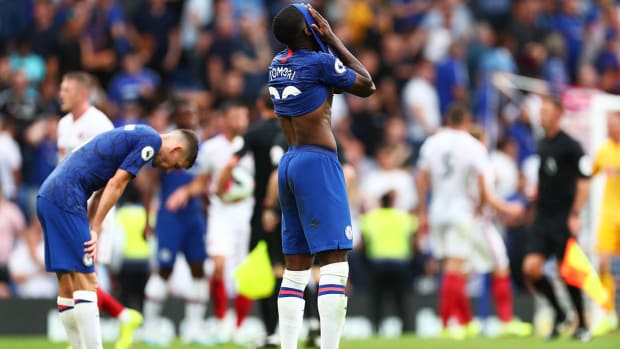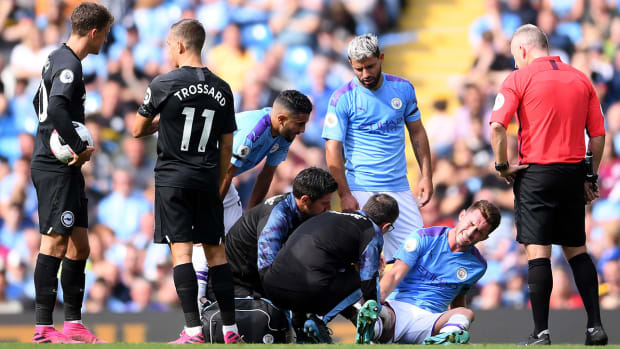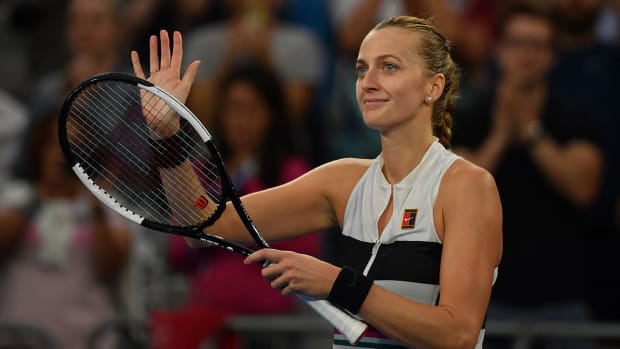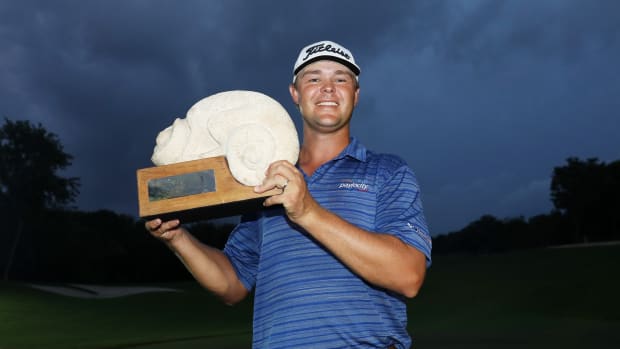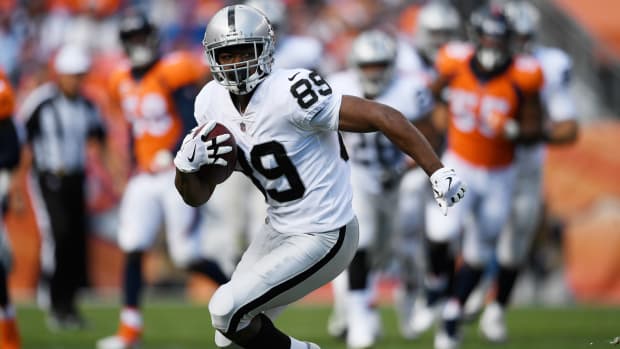Chock-Bates lead ice dance at nationals over Shibutanis
GREENSBORO, N.C. (AP) Jason Brown makes it sound so simple: The stakes of the U.S. Figure Skating Championship don't make for pressure, just a chance to show off for a big crowd.
The 20-year-old Olympian won the short program Friday, setting himself up for his first national title. Brown posted a career-best 93.36 points to lead Joshua Farris by 2.96, while four-time U.S. champ Jeremy Abbott was third, another .47 back.
Brown still doesn't do a quad jump, all but a necessity to contend for medals at major international competitions. But he can still rack up points with the rest of his performance, which proved to be plenty at the U.S. Championships, where Farris and Abbott didn't do a quad, either.
Brown landed his four triples with ease Friday. Hooking his thumbs in his sequined suspenders and running his hand over that famous ponytail, he kicked and tapped his feet in perfect rhythm to the bluesy ''Juke.''
Brown, who finished ninth at the Sochi Games, insisted before this event that he wouldn't wilt at being a favorite for the first time. It's a refrain often repeated by athletes; the difference is that Brown seems to always make it come to life.
''You get to perform to people and for people - I just kind of look at that as an exciting moment,'' he explained, as exuberant as ever.
He had struggled with his triple axel during the Grand Prix season. No such trouble Friday. But no matter how smoothly he lands that jump, Brown will keep hearing questions about that missing quad.
The answer is always the same: It will be in his repertoire at March's world championships only ''if it's ready and if it's good and solid and consistent and doesn't mess up my mental state,'' he said.
''So much when you go to a competition is the mental side,'' Brown added. ''You want to go in knowing you can do everything in your program. I don't ever want to go in with the quad and think too much about that one jump and take away from the rest of the program and the performance of it.''
Farris and Abbott do quads, though each decided to drop it from his short program. Farris has struggled with an ankle injury and figured building confidence was more important. He plans a quad in his free skate.
The 29-year-old Abbott revamped his technique and equipment over the summer and is still refining his quad.
''I am so happy to be sitting here with these two men: I think we made a nice strong statement that figure skating can be an art as well as a sport,'' Abbott said.
Farris, also 20, won the 2013 world junior title ahead of Brown and was fourth at senior nationals that year. But when Brown made a major breakthrough at the 2014 U.S. Championships to finish second behind Abbott and earn the Americans' second Olympic berth, Farris was fourth again.
He's always admired how Brown draws in the crowd and had worked hard to connect more. On Friday, he did just that.
''I'm so surprised I performed as well as I did,'' Farris said.
He was ''terrified'' before his program. No wonder considering what happened the last time this event was in Greensboro four years ago, when, as he put it, ''I had probably the worst experience anybody has ever had at nationals before.''
He tore a muscle in his hip during a fall in practice, went to the emergency room with a severe allergic reaction between the short and long programs, then broke his leg during his free skate.
Abbott has plenty of warm memories from past nationals, and his 2014 title was supposed to be his last appearance. But he rethought his retirement after finishing fifth at the world championships after another dismal performance at the Olympics, still seeking that elusive major international medal.
This was his first competition since his father, who had suffered from Parkinson's disease, died earlier this month. When his program ended, Abbott kissed his hand and raised it to the sky.
In the ice dance, Madison Chock and Evan Bates hold a slim lead over fellow Olympians Maia and Alex Shibutani.
Chock and Bates won the short dance with 73.95 points, just .11 ahead of the Shibutani siblings. Chock and Bates won silver and the Shibutanis bronze the last two years at nationals behind six-time U.S. champions Meryl Davis and Charlie White.
Now Davis and White are taking a break after becoming the first American Olympic ice dance gold medalists. Their teammates from Sochi are looking to extend the country's newfound success in the sport.
